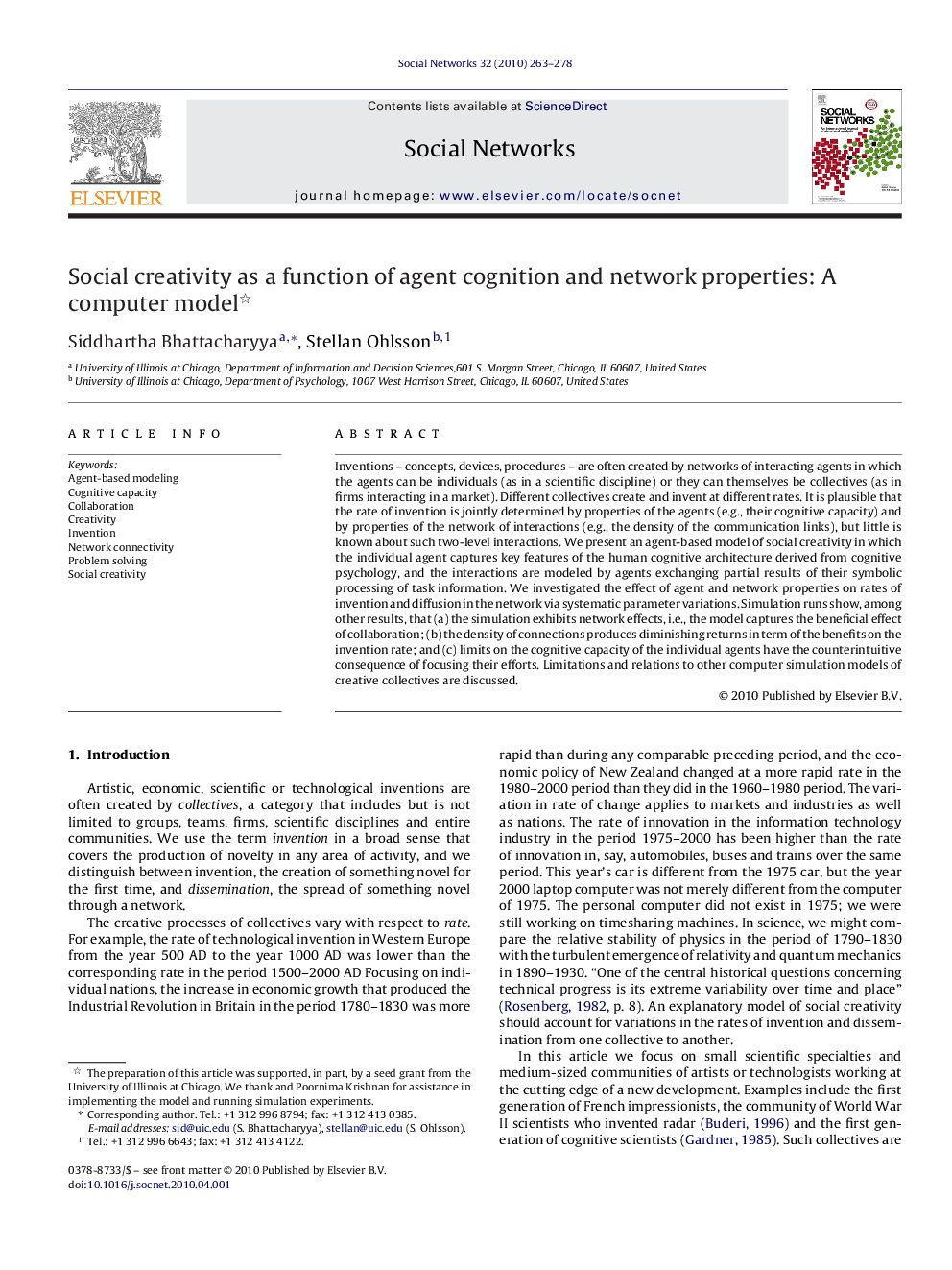| کد مقاله | کد نشریه | سال انتشار | مقاله انگلیسی | نسخه تمام متن |
|---|---|---|---|---|
| 1129274 | 955242 | 2010 | 16 صفحه PDF | دانلود رایگان |

Inventions – concepts, devices, procedures – are often created by networks of interacting agents in which the agents can be individuals (as in a scientific discipline) or they can themselves be collectives (as in firms interacting in a market). Different collectives create and invent at different rates. It is plausible that the rate of invention is jointly determined by properties of the agents (e.g., their cognitive capacity) and by properties of the network of interactions (e.g., the density of the communication links), but little is known about such two-level interactions. We present an agent-based model of social creativity in which the individual agent captures key features of the human cognitive architecture derived from cognitive psychology, and the interactions are modeled by agents exchanging partial results of their symbolic processing of task information. We investigated the effect of agent and network properties on rates of invention and diffusion in the network via systematic parameter variations. Simulation runs show, among other results, that (a) the simulation exhibits network effects, i.e., the model captures the beneficial effect of collaboration; (b) the density of connections produces diminishing returns in term of the benefits on the invention rate; and (c) limits on the cognitive capacity of the individual agents have the counterintuitive consequence of focusing their efforts. Limitations and relations to other computer simulation models of creative collectives are discussed.
Journal: Social Networks - Volume 32, Issue 4, October 2010, Pages 263–278